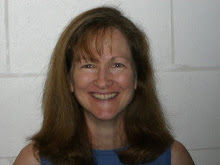About Me
- Name: Julie A. Carda
- Location: United States
Julie graduated from Creighton University with a major in dance and Theology and taught for several years at an inner-city school in Milwaukee. With a desire to expand her knowledge of the arts and spirituality, she attended St. John’s University in Collegeville and completed a Masters in Theology and Liturgical Studies. Over the years, her quest to merge diverse religious beliefs and practices through the commonalities of love and peaceful living, led her to travel, live, and study with shaman practitioners, herbal healers, Native American medicine women, Buddhist priests and other earth-based spiritual teachers. Through these experiences and experiences with global metaphysical teachings, she learned to honor the eternal source of love in all people.
Monday, February 22, 2010
Sunday, February 21, 2010
Saturday, February 20, 2010
Friday, February 19, 2010
Dancing With the Mountains
Above is a photo of my eldest son caressing the side of mountain. If you love the mountains you'll enjoy this classic bit of John Denver. If you're into the thrill of the 2010 Olympic skiing, you'll love the film footage. Check out this YouTube for a little lift to your day.
Sunday, February 14, 2010
Staying Present in the Face of Grief
Saturday, February 13, 2010
Joseph Campbell Quote
Tuesday, February 9, 2010
Dagara Grief Technique
Sobonfu Some teaches the importance of tears and the importance of someone bearing witness to those tears. In the western world our instincts are to offer kind soothing touch to ease away or shut off the tears. The Dagara way is to allow the grieving person an opportunity to cry without physical interference. Touch can shut down the tears that are ready to flow or flowing. During her Dagara grief rituals, Sobonfu demonstrates different grieving body language that would require the support person to intervene with touch. The touch is specific to the ritual. Done correctly, it will not shut down the emotional release. Sobonfu's calendar for grief ritual in the United States is listed on her website.
Monday, February 8, 2010
Recount One's Grief
Sunday, February 7, 2010
Shock and Testing part of grief phases
Saturday, February 6, 2010
Friday, February 5, 2010
Problems with Grief Phases
Getting stuck in denial is common in 'cool' cultures (such as in Britain, particularly Southern England) where expressing anger is not acceptable. The person may feel that anger, but may then repress it, bottling it up inside.
Likewise, a person may be stuck in permanent anger (which is itself a form of flight from reality) or repeated bargaining. It is more difficult to get stuck in active states than in passivity, and getting stuck in depression is perhaps a more common ailment." Read more on this topic.
Thursday, February 4, 2010
Wednesday, February 3, 2010
Phases involved in Grief
Although there are many theories about the emotional path grief takes most grief therapists agree about the general phases involved.
Tuesday, February 2, 2010
Grief a Human Response to loss
Examples of such loss are: a relationship breakup, loss of health, loss of a job, loss of financial stability, a miscarriage, death of a pet, loss of a dream, concern over a loved one’s serious illness, loss of friendship, loss of safety after a trauma, loss of a job, retiring from a job, loss of a way of life, moving from home, concern for earth and global strife. Generally, the more significant the loss for a person, the more intense the emotional outpouring of the grief.
Have you experienced grief? What have you done with the emotional response?
Monday, February 1, 2010
Grief Ritual

What is a Dagara grief ritual? Grief Ritual is one of the most important rituals of Dagara people. The ritual is a soul-cleansing rite that can clear away lingering clouds and festering wounds from abandonment, divorce, death, the loss of careers, dreams and much more. This ritual can help release grief, lighten your soul, let your true spirit be heard and help you become more balanced. Sobonfu, assisted by Jojopah, a fire shaman, will lead a group of participants through this two and half day event.
Who attends or should attend the grief ritual? People feeling grief for the earth, anyone who has lost a loved one, a job, a dream or pet; people who are stuck in unhealthy relationships or emotionally unhealthy situations; therapists, educators, business people, retired people, Veterans, Holocaust survivors, gardeners, lawyers, scientists, musicians, doctors, nurses, artists... people exploring their feelings or experiencing loss, people like you and I, etc.... Participants build a traditional African ritual space, transition to becoming a village, drum, sing, move and grieve. The 2 ½ day ritual is quite rigorous. The facilitators recommend participants reserve some personal transition time the day after the event. Pricing is $340 partial scholarships may be available. Contact Julie to inquire. To register, get more details and arrange payment options contact Julie Carda juliecarda@gmail.com


